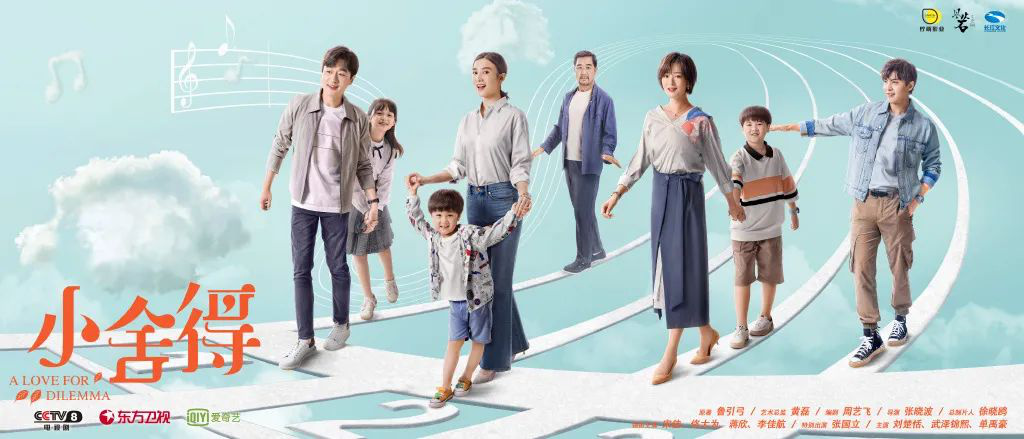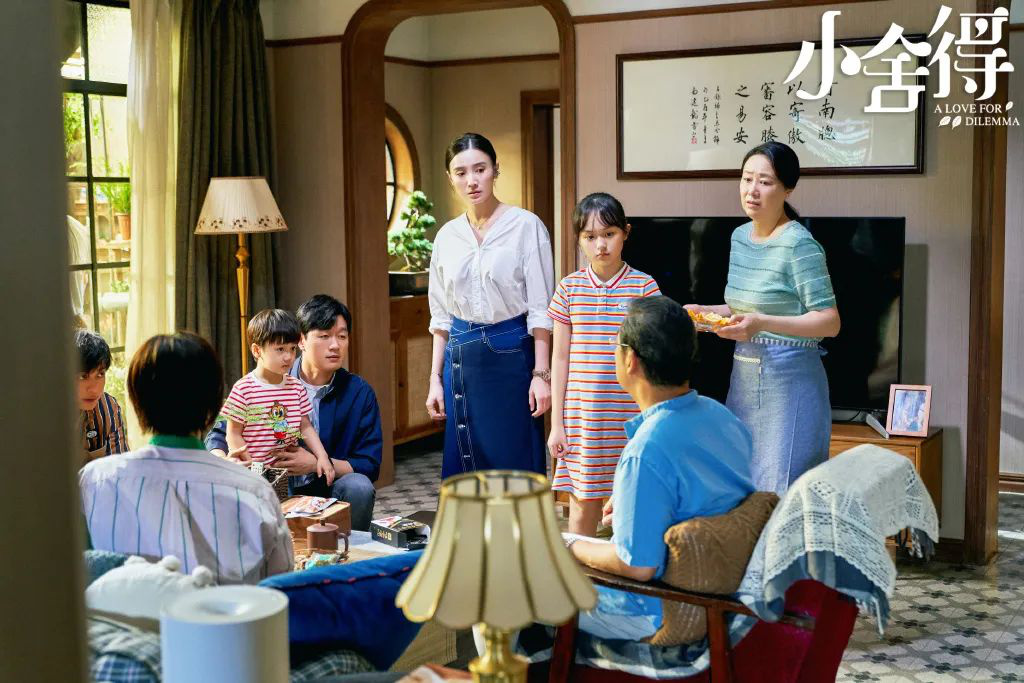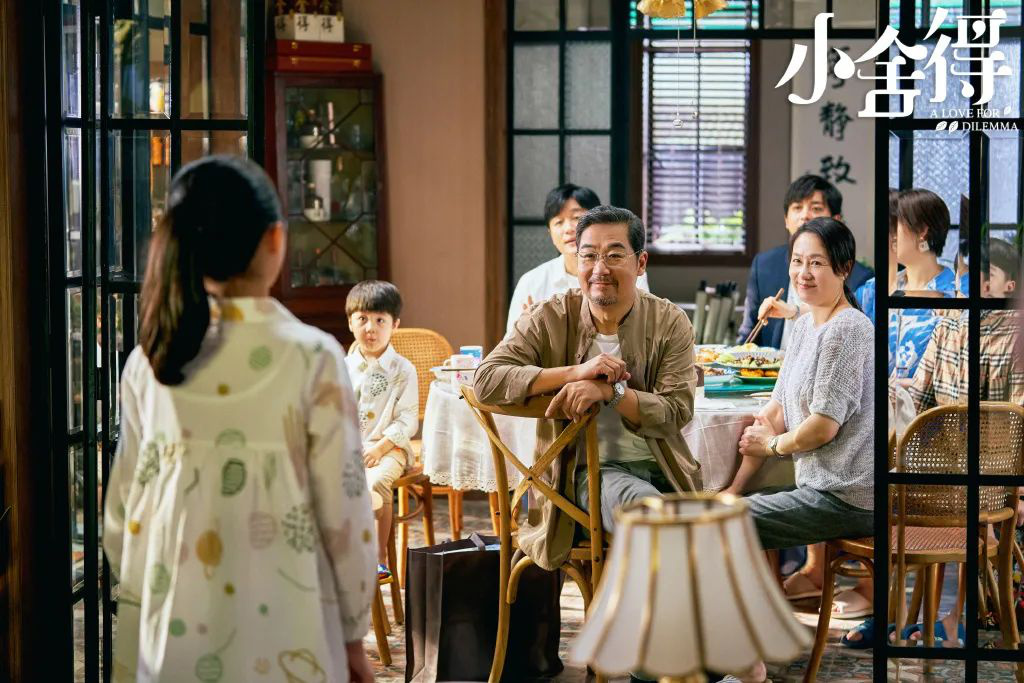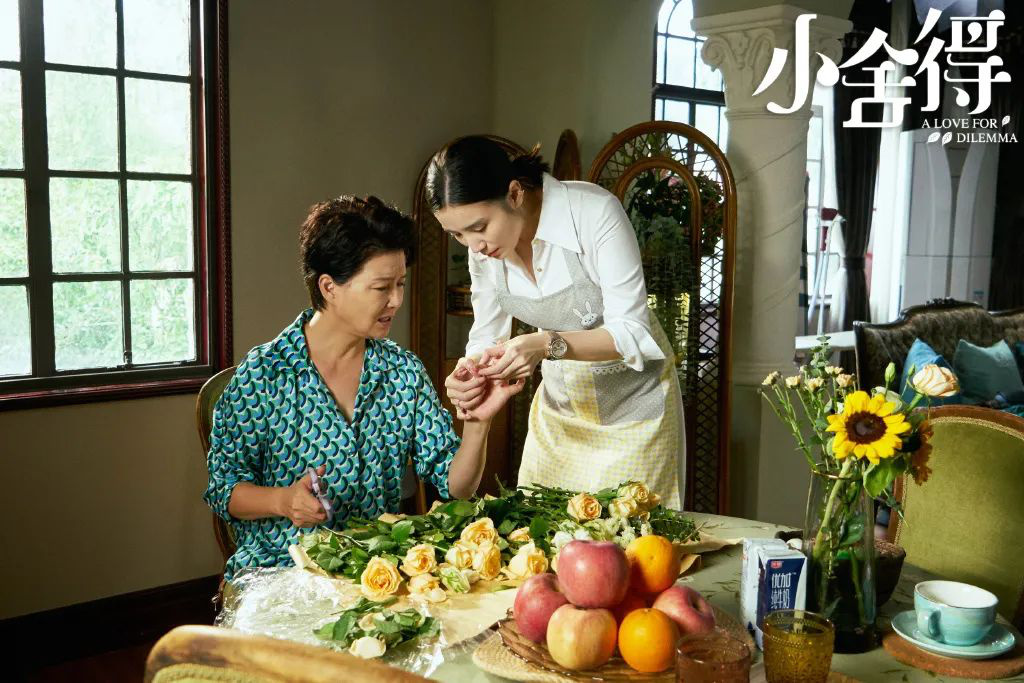
In recent years, film and television dramas with the theme of family education have emerged in an endless stream, and the response has been good. These stories are like a mirror, which is a realistic portrayal of our habitual education anxiety society. The pain points in them can often provide some thoughts for the audience and trigger a heated discussion in society. Recently, the "Little" series of family education drama "Little Shede" was broadcast on Dragon TV and CCTV-8 TV channel, and iQiyi was broadcast simultaneously. Based on Lu Yingong’s novel of the same name, the play tells the story of China’s family in the early stage of "Little Ascension", such as Nan Li, Xia Junshan, their daughters Xia Huanhuan and Xia Chaochao, Tian Yulan, Yan Peng and their son Yan Ziyou.

Xiao Shede is the third drama series of Ning Meng Film focusing on family education. The first "Little Parting" focuses on the story of junior high school’s promotion to study abroad; The second "Little Joy" focuses on the story of high school going to college and college entrance examination; The third "Little Shede" makes up for the vacancy of the previous two plays, telling the story of elementary school to junior high school, and paying more attention to the physical and mental growth of children of primary school age.
The play begins with a "family dinner". Every once in a while, Nan Jianlong asks his two daughters to bring their small families back for family dinners. A 20-minute dinner scene skillfully shows the core elements of the play, such as the theme, main characters, relationship between characters and plot contradictions. The group shots of different scenes and different characters switch quickly, the plot rhythm is compact, the characters are portrayed in place, the details are handled accurately, and there are "plays" everywhere. For example, before the dinner, grandma prepared slippers for two families, took a pair of disposable slippers for Nan Li, and prepared daily slippers for others; After the dinner started, grandpa prepared gifts for the two children, but the gift for Yan Ziyou was exactly the same as the last one. These details keenly captured the subtleties of the reorganized family in dealing with the parent-child relationship, and also paved the way for the complicated psychological changes of the characters.


Based on the comparison of children in the dinner, the relationship between this remarried family has been pushed to a turbulent situation. Back pi, talent show, grade ranking … A typical "Chinese-style" family gathering fully shows the "comparison" phenomenon in current real family education. After a scene, two families with completely different educational concepts are in sharp contrast. Grandma Cai Juying’s daughter Tian Yulan’s parenting concept is "love will win", and her grades are the last word. Her son Yan Ziyou is also the top student in the class. Grandfather Nan Jianlong’s daughter Nan Li believes in "happy childhood" and doesn’t care much about her grades. Her daughter Xia Huanhuan is good at singing, but her grades are not satisfactory. The relationship between the two daughters, who are separated by the reorganization of their families, is even worse because of their different parenting concepts and comparison psychology.
Xiao Shede is a realistic drama related to the anxiety and exploration of family education. Taking family education as the main line, it shows the life of different families in a panoramic and multi-dimensional way, especially focusing on the details of life. Its plot content covers almost all circles of society, and it is easy for audiences of different ages to empathize. In addition to family education, the series also discusses the current social pain points such as the second child problem, the phenomenon of gnawing at the old, the balance of educational resources, teachers’ professional ethics, and whether there should be extracurricular counseling. The drama series does not give an absolute positive or negative answer, but shows the collision of different viewpoints from an objective and three-dimensional narrative perspective. The story will eventually have an ending, but life is full of unknowns, and education has no correct answer.


Under the pressure of the external educational environment, several families in the play are trapped in the quagmire of "educational involution", and "Little Shede" is more to provide some thinking and reflection for the audience and convey the interests of "giving up" and "getting". There is no universal standard for education, and so is life. For children, especially for children in junior high school and junior high school, they need to reduce their burdens, and their parents need to loosen up and learn how to "give up" and "get". Only when there is "giving up" can there be "getting", which is the interpretation of the title of the play and the main theme of the whole play.
—
关于作者